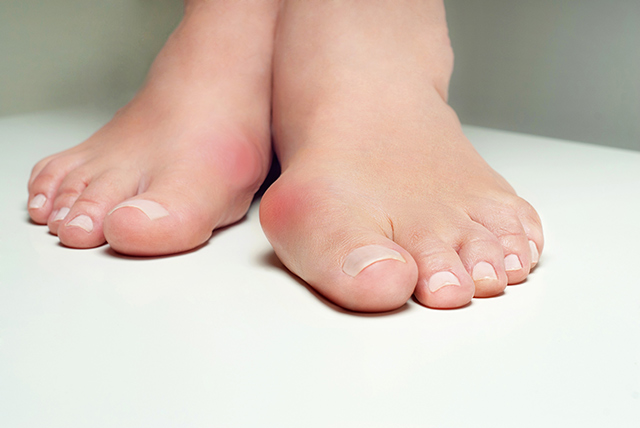Whole Foods is ending the practice of selling food made with prison labor
11/13/2015 / By Carol Young

Whole Foods has finally decided to end the practice of selling food made using prison labor, but not out of the kindness of its heart. A demonstration in Houston, Texas, led to the decision, and it was only after this bad press that Whole Foods finally decided that using indentured labor to sell artisanal products was probably not the most ethical business practice.
Rich people raise rich kids, and poor people end up in prison making expensive cheese for those same rich kids. This may sound like a stretch, but the more our society widens the gap between the haves and the have-nots at the expense of a shrinking middle class, with more than a bit of prison-for-profit policy thrown into the mix, the greater the chances we’ll end up with an economic system built on incarcerated poor people making goods that only the well-to-do can afford.
Americans are unusually optimistic about their economic prospects, generally much more than their European counterparts, but this unchecked optimism perpetuates a system where the “little guy” is often used and abused by powerful elites. One well-worn phrase easily sums up the attitude of many in our nation: “Pull yourself up by your bootstraps.” Of course, this sort of tough-love attitude sometimes produces admirable results, but just as often it sets us up to tolerate more and more from both government and corporations until our collective strength and resources run dry.
The poor stay poor, but they make great cheese!
Consider a recent article published by The Atlantic that discusses the state of poverty in America. When poor kids are moved out of poor neighborhoods, they have a much greater likelihood of not falling back into poverty as adults. Similarly, wealthier children “develop a tendency to save money” and also “richer parents gift their children with more money (and less debt).”
100% organic essential oil sets now available for your home and personal care, including Rosemary, Oregano, Eucalyptus, Tea Tree, Clary Sage and more, all 100% organic and laboratory tested for safety. A multitude of uses, from stress reduction to topical first aid. See the complete listing here, and help support this news site.
And all these bring us back to the issue of cheese — especially artisanal cheese. Artisanal cheese makers have an unusual arrangement with certain correctional facilities in the United States. For instance, Haystack Mountain Goat Dairy sources the goat milk for their cheese from Skyline Correctional Center in Cañon City, Colorado.
Meanwhile, the Colorado Department of Corrections encompasses both public and private prison facilities. The programs run at the Skyline Correctional Facility include Colorado Correctional Industries listed as farm, vineyard, recycling, fish hatchery, goat dairy, water buffalo dairy, mountain sheep program, canine companion, heavy equipment and “State Wildland Inmate Fire Team (SWIFT).”
According to Jennifer Alsever, the Colorado Corrections Industries (CCI) “employs” six inmates to milk 1,000 goats twice a day on their prison-run farm. This milk is then used to make cheeses for Haystack Mountain, which in turn uses non-inmates to cultivate the cheese and sell it at Whole Foods. Has Whole Foods also turned prisoners into foodies?
In addition to being farmers and part of the artisanal cheese production chain (gang), prisoners at the Skyline Correctional Center also make toys, and, according to Jennifer Alsever, some prisons also make (zebra-wood) fishing poles, redwood canoes, saddles and even specialty motorcycles. The CCI, in particular, is a self-funded state agency, making use of 2,000 convicts at 17 different facilities to create a $65 million business.
The goods made by the prisoners are not marked as a product of “indentured labor” and, as Pacific Standard‘s Graeme Wood points out, “the prison wants to keep its industries small and its captive labor market unnoticed — especially by private competitors and by the consumers who buy, eat, wear, or cuddle their products.” Not surprisingly, such practices are common in China, and were known to have occurred in former East Germany, but is this the sort of industry we want to support with our tax dollars?
The prisoners earn about $1.50 an hour, which works out to about $125 a month. The inmates at CCI benefit from their social contact with both people and animals in their work, and this Swedish-style rehabilitation might help them forge new paths upon their release. At the same time, the veil of secrecy about where the cheese was sourced, and the fact that Whole Foods profits greatly from cheap prisoner labor makes the whole practice seem questionable at best. Too, there is a dark side to this story: often, the prisons that engage in this practice operate “slave-like labor” where prison-work programs pay inmates very little, as in the case of similar operations in Texas.
Get the serfs to milk the goats!
As regards the goat dairy and cheese sold at Whole Foods, the dilemma comes down to using cheap prison labor to sell artisanal cheese to wealthy people. It’s difficult to not see this practice as a kind of serfdom, where “peasants” perform the backbreaking work to make goods for a well-to-do aristocracy.
According to Stan Cox of AlterNet, half of Whole Foods stores are located in zip codes where the average income is $72,000, and a fourth of Whole Foods stores are located in zip codes where the average income is over $100,000. Based on this information, we can reasonably assume that a majority of Whole Foods shoppers have an average income of around $72,000, which is more than the U.S. per capita income ($28,184) by $43,816 by 2013 standards.
According to PrisonPolicy.org, the median annual income of prisoners before they are incarcerated is $19,185. Authors Bernadette Rabuy and Daniel Kopf note, “The American prison system is bursting at the seams with people who have been shut out of the economy and who had neither a quality education nor access to good jobs.” The writers also point out that the income disparity cuts across all genders, races and ethnic groups: “We found that incarcerated people in all gender, race, and ethnicity groups earned substantially less prior to their incarceration than their non-incarcerated counterparts of similar ages.”
More people in prison, more artisanal products for the WF demographic!
Keeping these statistics in mind, remember that America also incarcerates more people than any other country in the world. (We’re number 1!) The United States may have less than 5% of the world’s total population, but we incarcerate almost a quarter of the world’s prisoners, according to The New York Times article “Inmate Count in U.S. Dwarfs Other Nations.” We have more prisoners than Russia, which holds 627 prisoners per 100,000 people. In the United States, there are 751 people in prison or jail for every 100,000 of the population, which is over twice as large as Russia’s.
Some states also have contracts with for-profit prisons to fulfill prisoner quotas, and when they don’t get their quotas met, they threaten to sue the state. This creates incentive for arresting and incarcerating people, and since low-income people have fewer resources to fight their charges, they make easy targets for law enforcement. And, with more people in lockup, there is a larger labor force that can make high-profit products on the cheap.
When the for-profit prisons can’t turn a profit, they just sue the state
In 2011, private prison operator Management & Training Corp. received $3 million because Arizona could not keep their prisons filled to quota. That’s right, Arizona tax dollars went to a private prison company because the state could not arrest and incarcerate enough people to sustain the private prison’s profit margin. Taxpayers are footing the bill on both ends — to keep people in prison, or paying for them even when they’re not in prison. Any way you slice it, the people are losing out.
Make sure you are born into the right family
But none of these problems come close to touching the uber-wealthy Whole Foods shoppers, or the multibillion-dollar company that Whole Foods has become. Of course, Whole Foods may believe it is doing a good deed by employing prisoners to make their artisanal cheese, but the real problem is not our need for rehabilitation of criminals (although, the US is sorely lacking the type of compassionate rehabilitation programs that succeed in other nations and has a disturbingly high level of recidivism) but that the United States simply incarcerates too many people and often for non-violent, victimless crimes.
There is also a conflict of interest when you consider that the country allows for-profit prison institutions to be run at the expense of the common (tax-paying) people. This colossal inequality issue is downright eye-popping. Poor people get locked up to benefit the for-profit prison industry. Meanwhile, state-run prisons profit from contracting out prison labor for boutique businesses that sell to the wealthiest people in the country. It reads like something out of a Charles Dickens novel.
Why not just lock up all of our poor and have them make products for the Whole Foods elite? Wouldn’t that solve all of our problems more simply? The way our policies are heading, we may simply turn into a nation of slave laborers who serve out their lives grooming the dogs of the rich and brewing craft beer for the people who were fortunate enough to be born into the right zip codes.
Whole Foods announced that they will have completely ended the practice of selling prison-made food products by April 2016 or even sooner, if possible, but the real question is, is this soon enough? Whole Foods waited until the public made them accountable for their shady practices, and if not for the recent Houston protest, they may have even expanded their operation and used prison-labor to source out many more products… if not just that expensive goat cheese.
Sources:
Tagged Under: artisanal cheese, prison labor, slave labor, Whole Foods




















